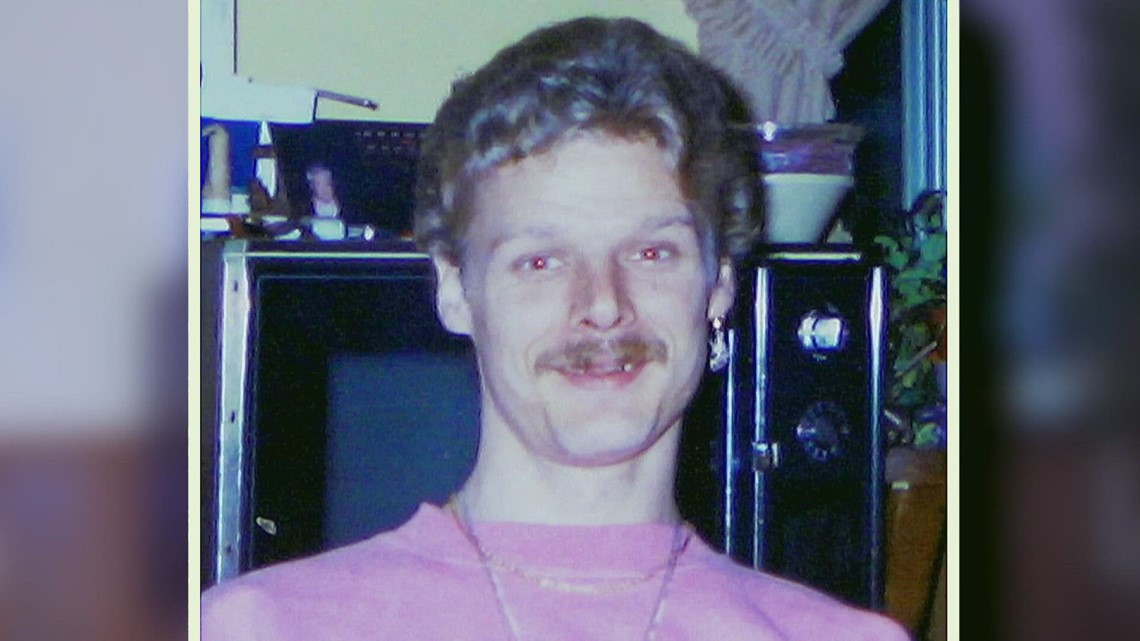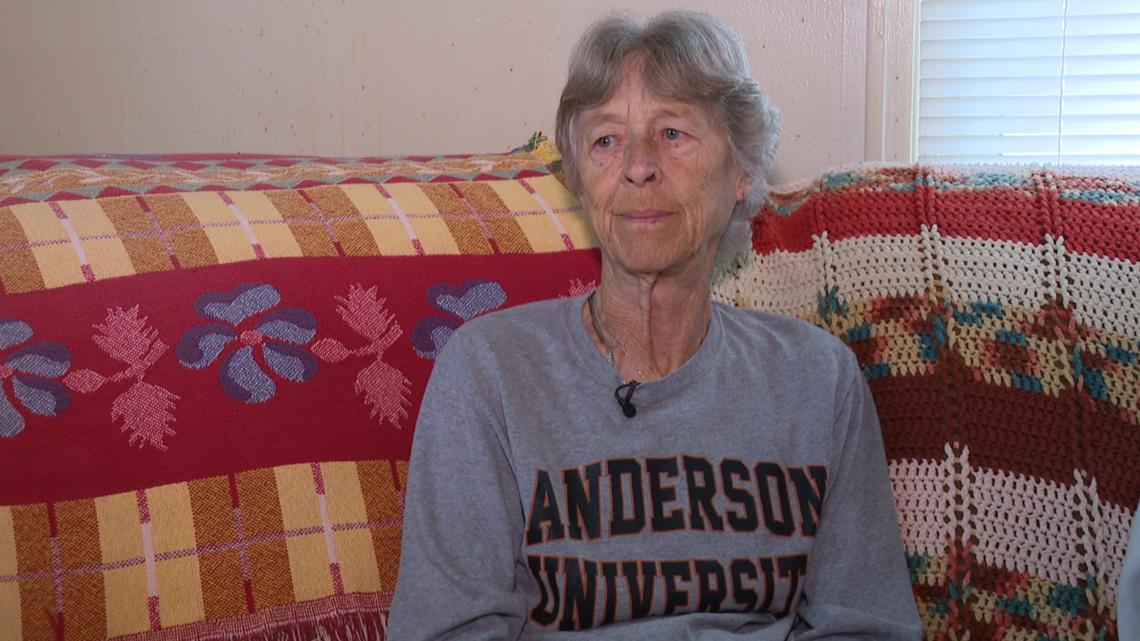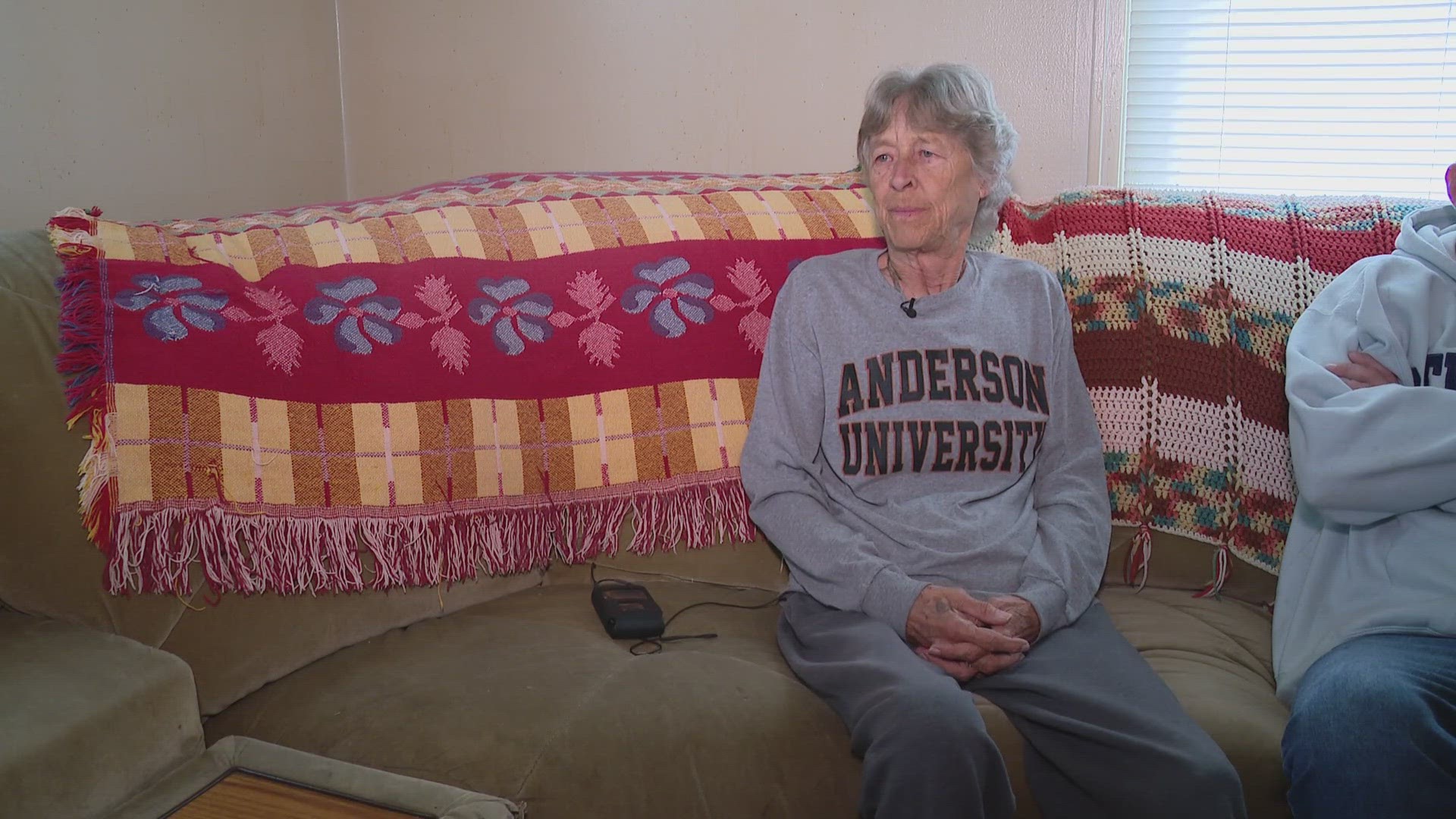INDIANAPOLIS — Thirty years. 10,950 days.
That's how long an Indianapolis mother has waited for answers about her son's fate.
This week, she finally got the answer.
At a time when most of the world uses cellphones, Sharon Livingston has always held on to her landline and the phone number with it.
Sharon never said why, but her daughter, Shannon, always knew the answer.
"I knew why she was doing it. She was hoping Allen would call, and it just didn't happen," Shannon said.
Allen was Sharon's son, who disappeared in August 1993 when he was 27 years old.
For years, Sharon not only held on to her landline in case Allen called, but she also held on to the hope he was alive.
"I was hoping he was just somewhere with a friend and would come home," Sharon said.


Letting go of that hope was never easy.
That first year after Allen disappeared, Sharon still wanted him in the family picture, so Sharon's oldest son, David, held a picture of Allen when the photo was taken.
"That was the only way to get Allen in the picture because we didn't know where he was," Sharon said.
Then, in 1996, police found the decomposed and charred remains of at least two dozen men on Fox Hollow Farm in Westfield. Police believe the more than 10,000 bones and bone fragments belonged to the victims of suspected serial killer Herb Baumeister, who lived at the property.
Since they were recovered close to 30 years ago, those remains have been stored at the University of Indianapolis, with some of the victims being identified from them.
Sharon always wondered if Allen was among them.
Last year, her nephew, Eric, called the Hamilton County Coroner's Office to see if they could get the answer.
That caused Hamilton County Coroner Jeff Jellison to reopen the case and ask people across the country to submit DNA samples if they had a male loved one who disappeared from the mid-1980s through mid-1990s.
"He started it without my knowing, and then, he told me, and it's like keeping going forward because sooner or later, maybe we will get some answers, and it worked," Sharon said.
This week, the answers came when Sharon's phone rang.


The DNA sample she gave in December matched remains stored at the University of Indianapolis.
"I do now have some closure because he's been found," Sharon said.
"It's just ironic that Allen's the reason why the case got re-opened, and then, he's the first identified, 30 years later," said Sharon's nephew, Eric Pranger.
Thirty years waiting for the phone to ring, hoping her son would be on the other end, putting her mother's heart at ease.
Instead, it was as a call that brought a different kind of peace — the kind that comes with having answers, even if they're not the kind you want.
"I'm a little more at peace, but not completely, until I get my son. I just want my son," Sharon said.
Sharon and her family plan to have a celebration of life for Allen at some point.
They hope the outcome they got encourages others to give their DNA if they have missing loved ones they think could be one of those unidentified victims.

